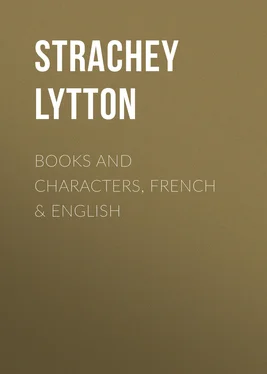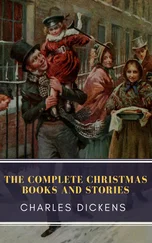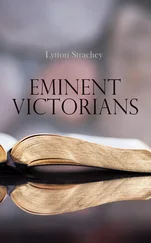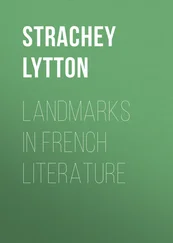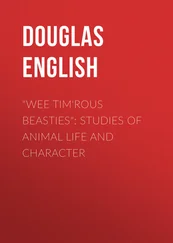Lytton Strachey - Books and Characters, French & English
Здесь есть возможность читать онлайн «Lytton Strachey - Books and Characters, French & English» — ознакомительный отрывок электронной книги совершенно бесплатно, а после прочтения отрывка купить полную версию. В некоторых случаях можно слушать аудио, скачать через торрент в формате fb2 и присутствует краткое содержание. Жанр: Биографии и Мемуары, Языкознание, foreign_antique, на английском языке. Описание произведения, (предисловие) а так же отзывы посетителей доступны на портале библиотеки ЛибКат.
- Название:Books and Characters, French & English
- Автор:
- Жанр:
- Год:неизвестен
- ISBN:нет данных
- Рейтинг книги:3 / 5. Голосов: 1
-
Избранное:Добавить в избранное
- Отзывы:
-
Ваша оценка:
- 60
- 1
- 2
- 3
- 4
- 5
Books and Characters, French & English: краткое содержание, описание и аннотация
Предлагаем к чтению аннотацию, описание, краткое содержание или предисловие (зависит от того, что написал сам автор книги «Books and Characters, French & English»). Если вы не нашли необходимую информацию о книге — напишите в комментариях, мы постараемся отыскать её.
Books and Characters, French & English — читать онлайн ознакомительный отрывок
Ниже представлен текст книги, разбитый по страницам. Система сохранения места последней прочитанной страницы, позволяет с удобством читать онлайн бесплатно книгу «Books and Characters, French & English», без необходимости каждый раз заново искать на чём Вы остановились. Поставьте закладку, и сможете в любой момент перейти на страницу, на которой закончили чтение.
Интервал:
Закладка:
Wealth of rhythmical elaboration was not the only benefit which a highly Latinised vocabulary conferred on Browne. Without it, he would never have been able to achieve those splendid strokes of stylistic bravura , which were evidently so dear to his nature, and occur so constantly in his finest passages. The precise quality cannot be easily described, but is impossible to mistake; and the pleasure which it produces seems to be curiously analogous to that given by a piece of magnificent brushwork in a Rubens or a Velasquez. Browne's 'brushwork' is certainly unequalled in English literature, except by the very greatest masters of sophisticated art, such as Pope and Shakespeare; it is the inspiration of sheer technique. Such expressions as: 'to subsist in bones and be but pyramidally extant'—'sad and sepulchral pitchers which have no joyful voices'—'predicament of chimaeras'—'the irregularities of vain glory, and wild enormities of ancient magnanimity'—are examples of this consummate mastery of language, examples which, with a multitude of others, singly deserve whole hours of delicious gustation, whole days of absorbed and exquisite worship. It is pleasant to start out for a long walk with such a splendid phrase upon one's lips as: 'According to the ordainer of order and mystical mathematicks of the City of Heaven,' to go for miles and miles with the marvellous syllables still rich upon the inward ear, and to return home with them in triumph. It is then that one begins to understand how mistaken it was of Sir Thomas Browne not to have written in simple, short, straightforward Saxon English.
One other function performed by Browne's latinisms must be mentioned, because it is closely connected with the most essential and peculiar of the qualities which distinguish his method of writing. Certain classical words, partly owing to their allusiveness, partly owing to their sound, possess a remarkable flavour which is totally absent from those of Saxon derivation. Such a word, for instance, as 'pyramidally,' gives one at once an immediate sense of something mysterious, something extraordinary, and, at the same time, something almost grotesque. And this subtle blending of mystery and queerness characterises not only Browne's choice of words, but his choice of feelings and of thoughts. The grotesque side of his art, indeed, was apparently all that was visible to the critics of a few generations back, who admired him simply and solely for what they called his 'quaintness'; while Mr. Gosse has flown to the opposite extreme, and will not allow Browne any sense of humour at all. The confusion no doubt arises merely from a difference in the point of view. Mr. Gosse, regarding Browne's most important and general effects, rightly fails to detect anything funny in them. The Early Victorians, however, missed the broad outlines, and were altogether taken up with the obvious grotesqueness of the details. When they found Browne asserting that 'Cato seemed to dote upon Cabbage,' or embroidering an entire paragraph upon the subject of 'Pyrrhus his Toe,' they could not help smiling; and surely they were quite right. Browne, like an impressionist painter, produced his pictures by means of a multitude of details which, if one looks at them in themselves, are discordant, and extraordinary, and even absurd.
There can be little doubt that this strongly marked taste for curious details was one of the symptoms of the scientific bent of his mind. For Browne was scientific just up to the point where the examination of detail ends, and its coordination begins. He knew little or nothing of general laws; but his interest in isolated phenomena was intense. And the more singular the phenomena, the more he was attracted. He was always ready to begin some strange inquiry. He cannot help wondering: 'Whether great-ear'd persons have short necks, long feet, and loose bellies?' 'Marcus Antoninus Philosophus,' he notes in his commonplace book, 'wanted not the advice of the best physicians; yet how warrantable his practice was, to take his repast in the night, and scarce anything but treacle in the day, may admit of great doubt.' To inquire thus is, perhaps, to inquire too curiously; yet such inquiries are the stuff of which great scientific theories are made. Browne, however, used his love of details for another purpose: he co-ordinated them, not into a scientific theory, but into a work of art. His method was one which, to be successful, demanded a self-confidence, an imagination, and a technical power, possessed by only the very greatest artists. Everyone knows Pascal's overwhelming sentence:—'Le silence éternel de ces espaces infinis m'effraie.' It is overwhelming, obviously and immediately; it, so to speak, knocks one down. Browne's ultimate object was to create some such tremendous effect as that, by no knock-down blow, but by a multitude of delicate, subtle, and suggestive touches, by an elaborate evocation of memories and half-hidden things, by a mysterious combination of pompous images and odd unexpected trifles drawn together from the ends of the earth and the four quarters of heaven. His success gives him a place beside Webster and Blake, on one of the very highest peaks of Parnassus. And, if not the highest of all, Browne's peak is—or so at least it seems from the plains below—more difficult of access than some which are no less exalted. The road skirts the precipice the whole way. If one fails in the style of Pascal, one is merely flat; if one fails in the style of Browne, one is ridiculous. He who plays with the void, who dallies with eternity, who leaps from star to star, is in danger at every moment of being swept into utter limbo, and tossed forever in the Paradise of Fools.
Browne produced his greatest work late in life; for there is nothing in the Religio Medici which reaches the same level of excellence as the last paragraphs of The Garden of Cyrus and the last chapter of Urn Burial . A long and calm experience of life seems, indeed, to be the background from which his most amazing sentences start out into being. His strangest phantasies are rich with the spoils of the real world. His art matured with himself; and who but the most expert of artists could have produced this perfect sentence in The Garden of Cyrus , so well known, and yet so impossible not to quote?
Nor will the sweetest delight of gardens afford much comfort in sleep; wherein the dullness of that sense shakes hands with delectable odours; and though in the bed of Cleopatra, can hardly with any delight raise up the ghost of a rose.
This is Browne in his most exquisite mood. For his most characteristic, one must go to the concluding pages of Urn Burial , where, from the astonishing sentence beginning—'Meanwhile Epicurus lies deep in Dante's hell'—to the end of the book, the very quintessence of his work is to be found. The subject—mortality in its most generalised aspect—has brought out Browne's highest powers; and all the resources of his art—elaboration of rhythm, brilliance of phrase, wealth and variety of suggestion, pomp and splendour of imagination—are accumulated in every paragraph. To crown all, he has scattered through these few pages a multitude of proper names, most of them gorgeous in sound, and each of them carrying its own strange freight of reminiscences and allusions from the unknown depths of the past. As one reads, an extraordinary procession of persons seems to pass before one's eyes—Moses, Archimedes, Achilles, Job, Hector and Charles the Fifth, Cardan and Alaric, Gordianus, and Pilate, and Homer, and Cambyses, and the Canaanitish woman. Among them, one visionary figure flits with a mysterious pre-eminence, flickering over every page, like a familiar and ghostly flame. It is Methuselah; and, in Browne's scheme, the remote, almost infinite, and almost ridiculous patriarch is—who can doubt?—the only possible centre and symbol of all the rest. But it would be vain to dwell further upon this wonderful and famous chapter, except to note the extraordinary sublimity and serenity of its general tone. Browne never states in so many words what his own feelings towards the universe actually are. He speaks of everything but that; and yet, with triumphant art, he manages to convey into our minds an indelible impression of the vast and comprehensive grandeur of his soul.
Читать дальшеИнтервал:
Закладка:
Похожие книги на «Books and Characters, French & English»
Представляем Вашему вниманию похожие книги на «Books and Characters, French & English» списком для выбора. Мы отобрали схожую по названию и смыслу литературу в надежде предоставить читателям больше вариантов отыскать новые, интересные, ещё непрочитанные произведения.
Обсуждение, отзывы о книге «Books and Characters, French & English» и просто собственные мнения читателей. Оставьте ваши комментарии, напишите, что Вы думаете о произведении, его смысле или главных героях. Укажите что конкретно понравилось, а что нет, и почему Вы так считаете.
